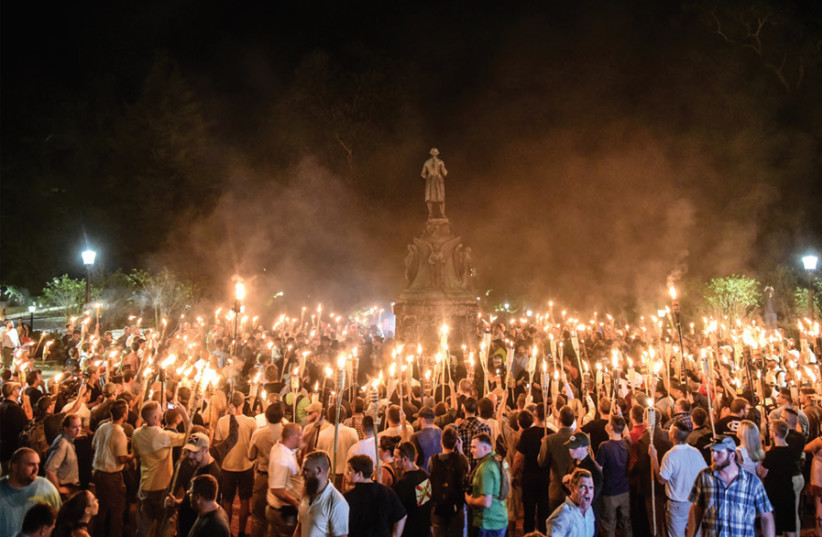There is a well-known Jewish saying that “a little bit of light dispels a lot of darkness.” It is no coincidence that at this time of year, when the daylight hours are shorter, the nights longer, and the skies graying, there are an array of religious festivals worldwide associated with light.
In the wake of the events of 2022, the Jewish people could use as much light as possible across the globe. The past year saw the further mainstreaming of antisemitism, with the most prominent example being rapper Kanye West’s emergence as a leading voice promoting baseless conspiracy theories about Jewish power and wealth.
Although West was already known as an eccentric and polarizing figure, and none of what he is pushing is fresh nor innovative, he has tens of millions of social media followers, and his loud and obsessive rhetoric is breathing new life into fringe ideas that undermine social solidarity and endanger Jews everywhere.
This has been attested to by the support shown for other celebrities mired in antisemitic scandals, such as NBA basketball player Kyrie Irving. As the Brooklyn Nets star faced public scrutiny in November for his own antisemitic social media posts, Black Hebrew Israelites marched through the streets of New York City menacingly reciting, “We are the real Jews” and “Time to wake up.”
This demonstration ironically drew comparisons with the white supremacists who shouted “Jews will not replace us!” in Charlottesville, Virginia, in 2017.

With growing displays of hatred for Jews evident among extremists across the ideological spectrum, the space and passive support for antisemitism seem to be growing. Jews are feeling this on the streets of their communities around the world, with record-high levels of antisemitic incidents recorded in 2022.
What has the US done as a result?
In the US, this has prompted Jewish institutions to adopt a European model of stricter security, including armed guards, higher walls and increased surveillance.
These measures, while necessary from a safety perspective, serve as a demoralizing daily reminder to Jews about the concrete threats they face. To identify publicly as a Jew means putting themselves on the frontlines of a battle they did not seek.
Nevertheless, amid this darkening reality, there is also light. While hate against Jews increases, many allies are stepping up to the plate and being counted.
As CEO of the Combat Antisemitism Movement (CAM), a global coalition engaging more than 650 organizations and nearly two million people from different religious, political and cultural backgrounds in the common mission of fighting the world’s oldest hatred, I have witnessed the power of partnership over the past year.
Recently, in Athens, we had more than 60 mayors and other top municipal officials from all over the world convene with the singular purpose of sharing and learning best practices about how to fight antisemitism. One key speaker, New York City Mayor Eric Adams, lamented the fact that antisemitism had become “normalized” and “popular,” and he called out its perpetrators.
Also last month, at the height of the Kanye and Kyrie furor, CAM helped organize the second annual awards ceremony of the Omni-American Future Project, a collaborative partnership strengthening ties between the black and Jewish communities in the US. These are just two recent examples of how prejudice can be countered with the fostering of cross-communal understanding and harmony.
However, this may have been best exemplified by CAM’s final event of 2022, when on the first night of Hanukkah, in the heart of Manhattan, a non-Jewish street artist painted a massive mural of Tibor Baranski, a courageous Hungarian-American who brought light to the world at the darkest moment in human history by rescuing more than 3,000 Jews during the Holocaust.
Of course, the Jews are not facing a Holocaust today, but we are under attack from an expanding number of hostile sources. To beat this network of hate, we must build, joined by our friends and all good people of conscience, an unbreakable web of togetherness, fraternity and comradeship.
Our enemies are gaining in strength, but so are our allies, and we must remember this. To turn the tide of rising hatred, we must reach more people who will stand by our side and say, “Enough!”
This is how we combat antisemitism.
The writer is CEO of the Combat Antisemitism Movement.
